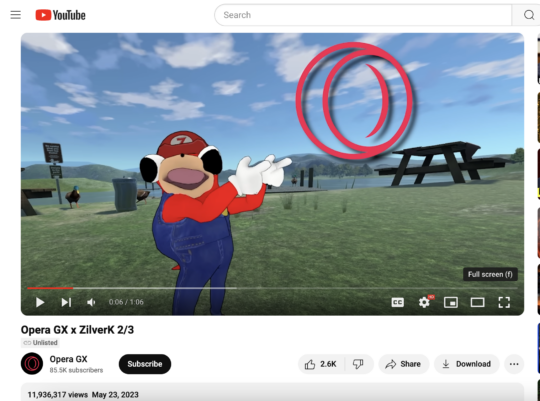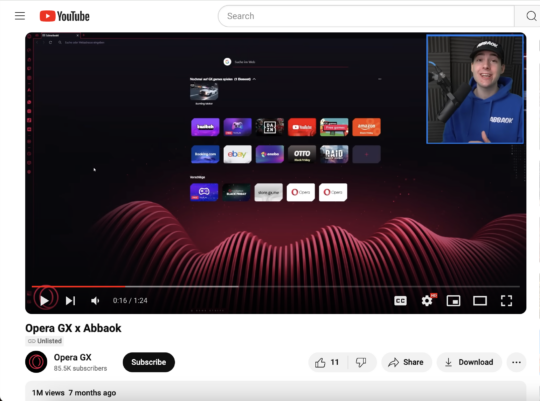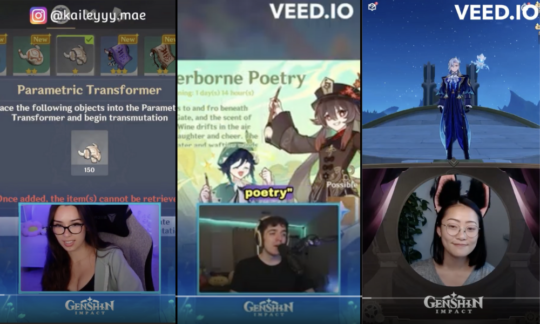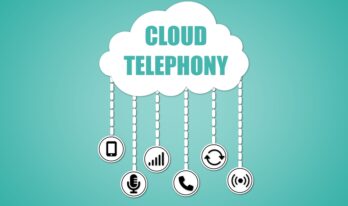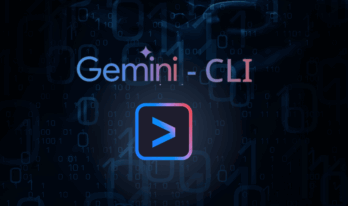Once we finally figured out what influencer marketing is, the new type of content is coming in and that’s – UGC. There’re tons of YouTube videos on how to make money as an UGC creator and people got obsessed with this topic. So here Viktoriia Petrova from Famesters agency decided to make everything clear about what UGC is, what’s the difference between content generated by ordinary people and the content generated by influencers, why more and more brands ask creators to provide the content without posting and what’re the benefits both for a brand and key opinion leaders.
What Is UGC?
UGC, or User-Generated Content, is content created by real people like you and me to promote a brand. Do you remember when you bought a new frying pan on Amazon and wrote a review? Or shared an Instagram story of your vacation, mentioning the hotel where you stayed? Or perhaps when you left a 5-star rating because you were impressed by the restaurant service? Well, this is what UGC is. Most of us do this every single day without even realizing it. And without recognizing the fact that UGC can cost money and bring some pennies to the table.
Everything, starting with rankings, written reviews, photos, videos and audios we share across our social media platforms can be called UGC and used by brands to leverage your content for their awareness. Nowadays, the information about UGC spreads quickly and some of the brands already felt the power of user generated content.
What About IGC?
Okay, now you have an idea of what UGC is, but you might still be unclear about IGC. Let me explain this. IGC, or Influencer-Generated Content, is content created by influencers—individuals who already have followers, subscribers, and authority in their specific niche. For example, if John Smith shares a story at a famous watch boutique and doesn't have many friends following his account, this would be considered UGC. However, if John Smith is already popular and has at least a couple of thousand fans, he can be considered an influencer (micro, nano, etc.). And the content he posted despite the fact whether it is sponsored or not will be called IGC.
So the key difference between UGC and IGC is the amount of followers and popularity in the digital space you have.
Why Brands Order UGC/IGC?
Marketing itself is complex and doesn't end with influencer marketing. Most of the sales and ROI results for brands come from paid and digital ads. To lower your CPI or CPA, you need to produce as many creatives as possible for your Facebook, YouTube, or Google ads. But where can you get such a large amount of content? This is where UGC comes in. It's much more affordable than a traditional photo or video shoot with models.
Brands save significant time and money by not needing to hire an entire crew to shoot a couple of videos for hundreds of thousands of dollars. It’s pretty simple: reach out to a person whose content you like, discuss the price, send the guidelines, and receive the deliverables quickly and as specified. The UGC creator is an all-in-one package—they're models, photographers, editors, and more, providing you with the creatives you need.
In addition to being cost-effective, UGC also offers the opportunity to capture different types of content with a variety of faces and nationalities. This results in unique photos and videos that can't be duplicated.
Why Brands Ask Creators To Provide The Content Without Posting It?
Nowadays, most brands are quite aware of influencer marketing unit economics and are checking influencers' data more professionally. Cost-effectiveness is becoming the key point when it comes to choosing an influencer from the list. CPM or CPV are major factors in deciding whether to reject or sign an influencer. Many influencers don't understand the logic of brands and their calculations, and some still think that brands will be willing to pay any amount of money they ask for.
But unfortunately for creators, these days are coming to an end. If an influencer doesn't consistently receive a significant amount of views, comments, and likes, and lacks a loyal community ready to support them and buy what they promote, it's more practical for brands to choose content without posting. The crucial point here is still the price; brands are not willing to overspend their budget on influencers who don't deliver a certain ROI.
I know many of you might argue that influencer marketing, like PR, is more for brand awareness and can't guarantee sales. While I mostly agree, I must say that the current trend presents a different perspective. Brands are increasingly focused on money and ROI. If a brand can't leverage the influencer's post effectively, they would prefer to pay for the content and usage rights without the post and use it for their paid ads to generate guaranteed sales.
How Brands Use UGC To Increase Their Sales
Most of the brands use digital and paid ads to generate their sales and obviously, they need tons of creatives for this. Brands use the Google Universal App (later - GUA) Campaign as the source of the cheapest traffic for installs. The thing with GUA Campaigns is that the campaigns settings are limited, that's why they need tons of content in order to lower CPI and optimize placement.
In situations where there are limited levers to influence placement, optimizing through a variety of formats — texts, banners, and videos — becomes crucial.
For example, CPI varied based on the number of placements. Increasing a number of ads from 14 to 28 reduced CPI by 17%. Providing a wide range of creatives, formats, and sizes is important. For example, uploading 20 static banners and 20 videos is essential, with a focus on a comprehensive package of various resize options. Videos should be optimized not only horizontally but also vertically, and square formats can be created for the app. Having a diverse array of creatives makes promotion easier and more cost-effective, as it allows the system to assemble necessary elements efficiently.
Absolutely, that's why brands require a large volume of UGC and IGC. This content can be utilized effectively in paid ads to significantly reduce CPI or CPA to a bare minimum.
Which Platforms Brands And Agencies Use To Find UGC & IGC Creators
Platform choice heavily depends on the niche. Despite the availability of subscription-based platforms with comprehensive data on influencers and UGC, many brands and agencies still prefer to find creators manually.
For instance, in the beauty and fashion niche, it's easier to discover UGC creators on platforms like Instagram, TikTok, and YouTube. Technology and gaming brands often seek UGC on Twitch, YouTube, and TikTok as well. For Web3, similar platforms are used, but brands may also search Telegram and Discord communities. Some brands, including large ones, even explore platforms like Fiverr and Upwork, where they can find individuals willing to create content for as little as $50 per video.
What Are Key Benefits For Brands From UGC / IGC Campaign And What’s The Difference
The key benefit for brands is obtaining content for their social media, paid ads, and digital campaigns. UGC creators offer native-feeling content, crafted by real people, making reviews appear genuine and encouraging audiences to make purchases. When people see ads featuring UGC, they perceive the results as real and trust the service or product being promoted.
Using UGC in ads can lower CPI or CPA and generate guaranteed sales. Brands also leverage UGC on social media platforms to foster trust with their audience. Sharing content from average individuals helps build a loyal community and can lead to organic sales over time.
Now, what's the difference between the benefits of UGC and IGC? As we all know, IGC is created by influencers or celebrities. The presence of a well-known figure can attract buyer attention and increase interest in the brand or service simply because the influencer uses it.
What Are Key Benefits For Influencers And Real People To Provide UGC For Brands
We've talked extensively about brands, but let's now discuss the benefits for influencers and everyday individuals creating UGC and IGC content. First and foremost, it's a well-paid job. For influencers, this means they don't have to post the ad on their own channel or adjust their schedule; they can simply create a video and provide full usage rights to the brand. They have the flexibility to create multiple videos as needed by the brand. For regular people creating UGC, it can serve as a side hustle and, ideally, evolve into a full-time job.
Case Studies And Experience
UGC is a relatively new trend in the influencer marketing industry and has great promise. Famesters uses user-generated content as a key tool for brands like Opera GX in 2024, strengthening trust and audience engagement.
UGC reduces marketing costs and builds a community around a brand, allowing for more personalized and relevant strategies. The UGC advertising campaign is a testament to many years of productive collaboration with Opera for results. The campaign shows 100% trust in the agency, which simplifies the mechanical processes of work for both parties. Based on the criteria of requests and budgets, we see that the performance of such a campaign is positive and only growing.
Along with Opera’s campaigns, at the end of last year, we launched Twitch streams for Genshin Impact, after which we offered the client to make an additional UGC part: we cut the video from the stream recordings, select the main highlights from there, add subtitles and beautifully design it for further use for an agreed amount. During the task, we used a special service veed.io, which helped us with detecting and adding subtitles; video streams and subtitles were reviewed by me manually. The task was creative and no one in the agency had done this before us, so most of the processes were done from scratch. Since a large amount of slang and names from Genshin Impact were used during the streams, the task was not the easiest, it became more complicated also the extreme scrupulousness of the client, but we managed it fast & well.
What’s The Future Of UGC Industry
According to SkyQuestt Report, the UGC Platform Market was valued at $4.4 billion in 2022 and is projected to grow from $5.69 billion in 2023 to $34.59 billion by 2030, with a CAGR of 29.4% during the forecast period (2023-2030). This growth signifies an increase in UGC/IGC creators entering the market. For some, being an influencer will become a full-time job. New job titles such as UGC Account Manager or Head of UGC are emerging, reflecting the industry's evolution. Currently, these roles are already visible on job boards.
Whether you're an influencer providing IGC content alongside your regular content or an ordinary person seeking opportunities to earn by writing reviews on Amazon or creating videos for brands, there's a niche for everyone. Your appearance and the products you promote are not limiting factors; there's room for diverse participation.
Author: Viktoriia Petrova (Team Lead “Software” At Famesters)
Recommended For You:
Why are Brands Using QR Codes to Enhance Customer Experience?


